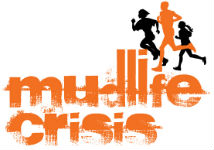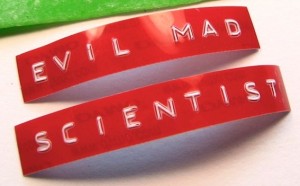Labels. They’re everywhere. Everyone seems to want to give themselves a little label to identify themselves: conservative or liberal; Christian, Muslim, Atheist, Pagan, Hindu; hipster, yuppie, dink; introvert or extrovert; DC or Marvel. It’s almost how we try to define ourselves.
And there’s no doubt that labels can be helpful. When you’re trying to explain things about the world, we need to define them with words that are effectively labels. But, as one of my personal development mentors tells us, “words limit meaning.”
Think about diet for a moment. We have vegetarian. Low-carb. Lacto-ovo-pescatarian. Vegan. Paleo. Ancestral. Primal. Autoimmune. SAD. South Beach. Dukan. Each of these (if you’ve heard of these diets) brings an image to your mind about what it means. And while that can be helpful when you’re trying to explain what sort of diet you have for yourself, they can also become self-fulfilling prophecies.
First of all, let’s define diet for our purposes in this article as a style of eating to attain some sort of goal. That goal might be weight loss, relief from symptoms of some disease or condition, muscle building, what have you.
How many times have you heard about a person who jumps onto a diet – ANY diet – and immediately becomes the poster child for its benefits and how to adhere to it. It becomes their identity (or even their own label!) in some cases – you especially hear about this in regard to the Paleo and Vegan diets, I think. That’s because elimination diets such as these two tend to lead to some very rapid changes for most people and an immediate cessation of conditions that cause problems for the body. Getting rid of processed food will do that to you, I think we’ll all agree.
But the goal of any elimination diet is not just to eliminate those foods, but to see exactly what foods might have been giving you problems so that you can eliminate those, and then perhaps learn that other foods you might have eliminated aren’t harming you or might even be helping you. That’s what I learned when I went Paleo a number of years ago – cleaning out stuff like wheat and other grains and sugars really helped to clean me up and to make my body sensitive enough that I really knew what foods weren’t helping me.
But I want to make it clear that just because a food falls outside of the normal sphere of a specific diet plan doesn’t mean that it’s bad for you. Example: a lot of people get benefit from dairy. Not everyone, but a lot of people.
So here’s where the labels come into play for the negative.
1. Isolation
When the time comes that we’re calling ourselves Paleo, low-carb, Vegan, or whatever as part of our identity, we are entering the realm of unnecessary dogma. You’ll hear people talk about the “Paleo Police” or the “Vegan Mafia,” who come down hard on people who aren’t adherents to their way of eating. Or they get offended when they’re offered a food that they don’t eat. Or they ostracize themselves from previous friends because all they can do is talk about their diet, and how wonderful it is, and how it’s more natural than your diet, etc. I will totally admit to being one of those people for a while.
It can make you very lonely and isolated to do this. And as we’ve pointed out in some of our Community posts, community is a big plus in life for health and happiness.
2. Diminished returns
Elimination diets aren’t necessarily meant to be held onto forever. They’re intended as a toxin removal procedure, followed by slow re-introduction of foods so that you can start from ground zero to see what foods you do actually have issues with. Perhaps the elimination diet itself will turn out to be what you function best with – that’s frequently the case for autoimmune diets and the like where you are alleviating nasty symptoms of neurological, thyroid, or other conditions. But that is not a 100% of the time thing.
Here’s the problem: after that elimination process, your body may need you to start taking in certain foods again for vital nutrients. Most people’s bodies do best with healthy animal fats in them, science has shown. Or perhaps you’re like me and find that a low-carb diet isn’t necessarily the best thing all the time – cycling some healthy carbs back in on occasion really does me a lot of good.
But if you’ve gotten through that elimination process and you’ve decided to label yourself as vegan, or low-carb, or Paleo, or whatever, and you’re starting to find that you’re not feeling as great as you were when you first finished the process, it can be hard to stop adhering to that label. I mean, you’ve gone out there and told everyone “I’m going Paleo” and now they expect you to be that way – especially all the people in your new community of Paleo folks. Same with Vegan, low-carb, etc. It’s an ego issue at this point to live up to the label you’ve adopted.
And you may even convince yourself that this new label is who you are. You may dismiss problems you’re having, health-wise, because you’ve said you are one thing that isn’t working for you any more. You may listen too much to only people who are also using your label because “that’s who you are.” And your health continues to plummet, because you’re holding on to something that is no longer working for you.
So, what to do?
Start by not saying “I am” with regard to your label. You’re not putting any pressure on yourself as a person if you just say “I’m doing a Paleo Diet” or “I’m going vegan for a while” and let people know that you’re experimenting with the diet to see how you feel or if you can learn anything from it. And yes, some of the Paleo Police or Vegan Mafia or whatever may exhort you to stay on those diets indefinitely because of whatever reasons they have, but ultimately not calling yourself something with an “I am” declaration gives you the freedom to shuck it if and when it’s not working for you.
Personal example: I used to call myself Paleo, but now I’ve come up with more of an elevator pitch of “I eliminated some foods, like grains, legumes, and vegetable oils that were giving me problems. I added in more veggies, too.” Short, simple, to the point. People who know these labels may ask “oh, are you Paleo?” and all you have to respond with is something like “I was, but it taught me what I needed to know about myself and I’ve adjusted my diet accordingly.” Same with vegan, low-carb, etc.
By doing this, your language has explained that you’re doing something individual to you. Sure, it may have started with something else, but now you’re doing your own thing with the knowledge YOU gained. And if you did the elimination right, re-introducing foods to see their effects on you, you have all the facts you need to explain to people what YOU know about yourself. All the Vegan Mafia or Paleo Police in the world can’t fight that.
Words limit meanings, for sure. So use them carefully and to your advantage. And don’t adopt a label that pigeonholes you anywhere. You’ll be happier and healthier for it.







